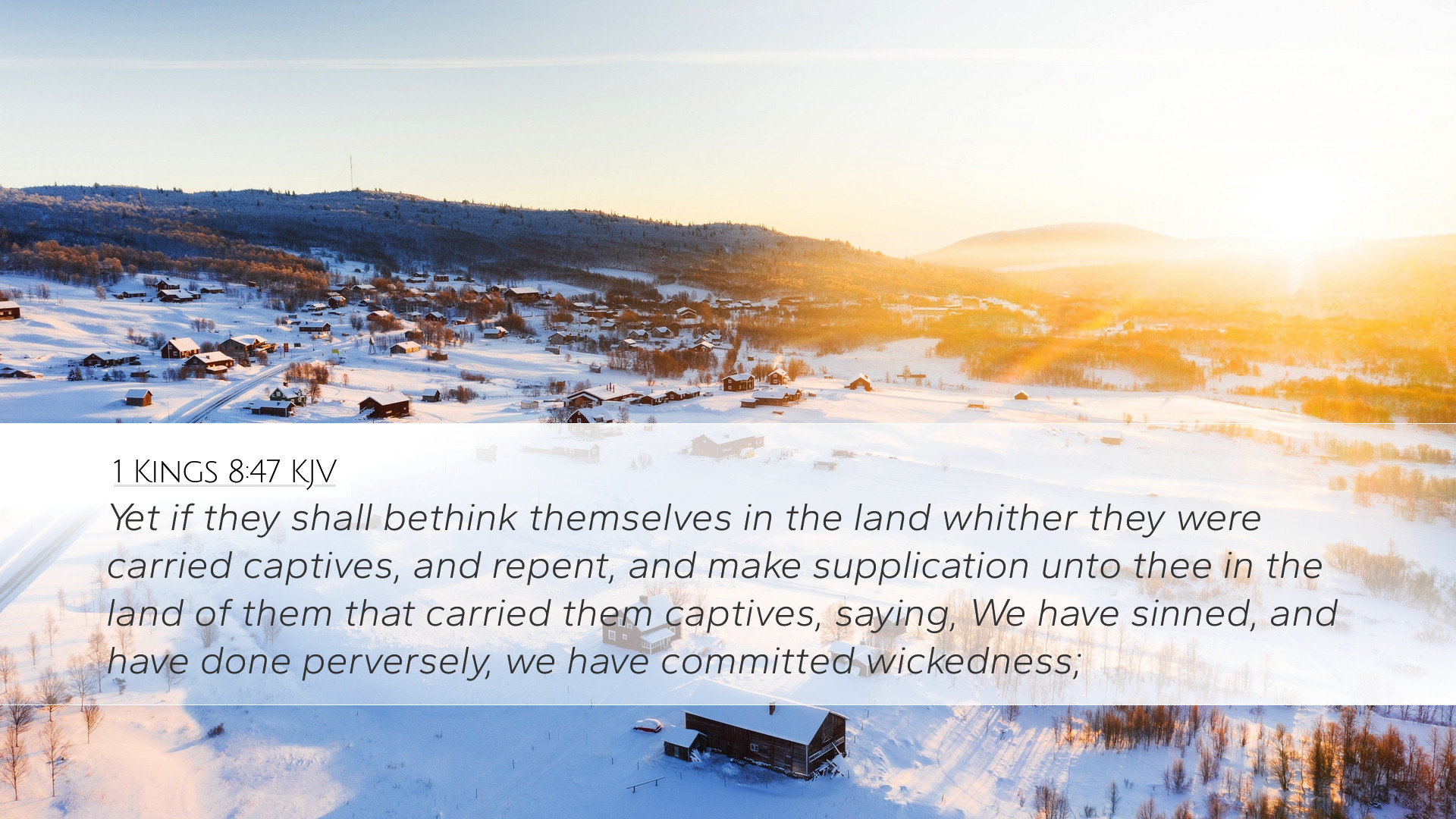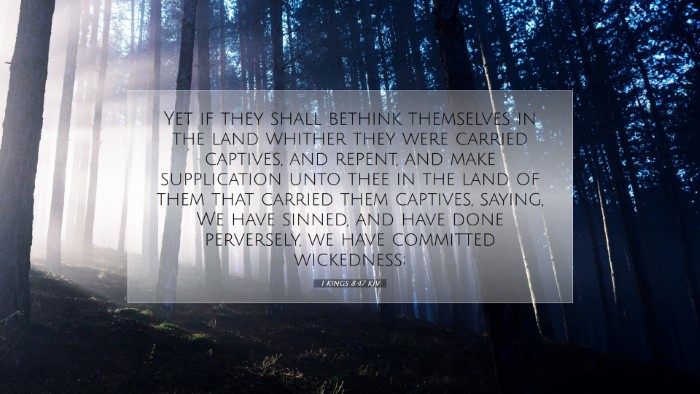Commentary on 1 Kings 8:47
Verse Reference: 1 Kings 8:47 (KJV) - "Yet if they shall bethink themselves in the land whither they were carried captives, and repent, and make supplication unto thee in the land of them that carried them captives, saying, We have sinned, and have done perversely, we have committed wickedness;”
Introduction
1 Kings 8:47 is part of the dedication prayer of Solomon as he addresses the people of Israel, invoking God's mercy in the event of their future disobedience. This verse serves as an essential reminder of the conditions of repentance and restoration that God offers to His people, even when they find themselves in exile due to their sins.
Historical Context
This verse occurs during a significant transition in Israel's history. Solomon, the son of David, has just completed the construction of the Temple in Jerusalem. This moment signifies the fulfillment of God's promise to David regarding a dwelling place for His Name. Solomon’s prayer underscores the themes of sin, exile, and redemption, which are pivotal throughout the biblical narrative.
Exegesis and Commentary
Meaning of "Bethink Themselves"
The phrase “bethink themselves” implies a deep, reflective consideration of one’s actions. It portrays a process of self-examination that leads to recognition of sin. Albert Barnes comments that this shows the need for a genuine acknowledgment of wrongdoing, which is fundamental to the repentance process.
Repentance as a Condition for Restoration
Solomon articulates repentance as vital for God's restoration. Matthew Henry notes that true repentance involves three critical elements:
- Recognition of Sin: The people must admit their wrongdoings.
- Sincere Repentance: A heartfelt contrition for sin must lead them to forsake their wickedness.
- Supplication: They must earnestly seek God's mercy through prayer and humility.
God's Faithfulness in Exile
Solomon's prayer affirms God's character as merciful and ready to forgive. Through the lens of Adam Clarke's insights, we see God's promise that even in their darkest moments—exiled from their homeland—they can still return to Him. This underscores the enduring nature of God's covenant and His readiness to restore a contrite heart.
Theological Implications
1 Kings 8:47 may be seen as prophetic, foreshadowing the spiritual reality of the Israelite exile as a consequence of sin. The emphasis on remembering and returning to God can be extended to the New Testament notion of repentance, where believers are continually called to confess and forsake their sins (1 John 1:9).
Connection to the New Covenant
The concept of supplication and God’s willingness to hear and forgive finds its culmination in the New Covenant established through Jesus Christ. As seen in Matthew 9:13, Jesus invites repentance, emphasizing mercy over sacrifice. Thus, 1 Kings 8:47 not only serves historical and immediate context but also pushes forward its relevance into the life of the church today.
Practical Applications
This verse offers profound insights that can guide contemporary believers in several ways:
- Self-Reflection: Encourages individuals to engage in daily introspection regarding their relationship with God.
- Cultivating a Heart of Repentance: Calls for a lifestyle that values quick reconciliation with God through genuine confession.
- Seeking God's Mercy: Reinforces the importance of prayer as a means of reaching out to God and seeking restoration.
Conclusion
1 Kings 8:47 is a powerful reminder of the need for repentance and the hope of restoration in the face of sin. It emphasizes God’s character as a loving Father eager to forgive and restore His wayward children. Pastors, theologians, and students of the Word are encouraged to embrace the lessons of this verse, acknowledging the depths of human sin and the heights of divine mercy.


